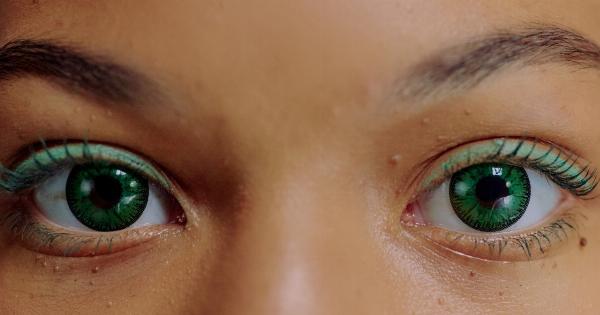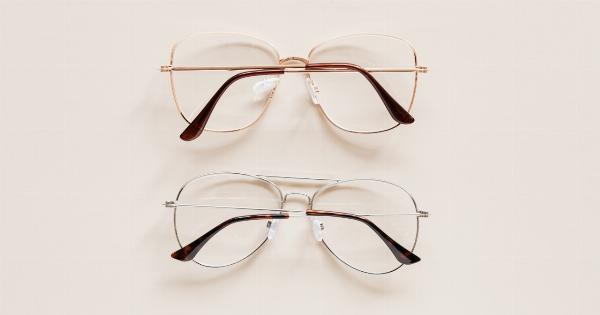For decades, eyeglasses were the only option for people with vision problems. However, with the advent of contact lenses, a new world opened up for those who wanted to see without the inconvenience of spectacles.
In this article, we’ll cover everything you need to know about contact lenses.
Types of Contact Lenses
There are two main types of contact lenses – soft and rigid gas permeable. Soft lenses are made of hydrophilic plastics that let oxygen pass through, while rigid gas permeable lenses are made of silicone and gas-permeable polymers.
Soft lenses are comfortable to wear and come in different types, including daily wear, extended wear, disposable, and coloured lenses. Rigid gas permeable lenses offer clearer vision but may need some adaptation time. Eyecare professionals will recommend the best type of contact lenses based on your lifestyle, visual needs, and eye health.
How to Wear Contact Lenses
Before wearing contact lenses, you need to have a comprehensive eye exam to determine your lenses’ prescription and ensure your eyes are healthy enough to wear contact lenses.
Then, you should follow your optometrist’s instructions on how to insert, remove, and care for your contact lenses. Proper care and handling of contact lenses are essential to prevent eye problems such as infections and irritations.
Be careful not to wear your contact lenses for too long and do not sleep with your lenses on, unless otherwise instructed by your optometrist.
Contact Lens Care and Maintenance
Caring for your contact lenses involves regular cleaning, disinfecting, and replacing them on schedule. Here are some tips on how to care for your contact lenses:.
- Wash your hands: Before handling your contact lenses, wash your hands with soap and water and dry them with a lint-free towel.
- Clean your lenses: Always clean your lenses with the solution recommended by your optometrist, and use a clean, dry cloth to dry them.
- Disinfect your lenses: Disinfect your lenses regularly with the recommended solution and ensure you store them in a clean case.
- Replace your lenses: Follow the schedule recommended by your optometrist for replacing your lenses, and never wear your lenses beyond the recommended period.
Advantages of Contact Lenses
Contact lenses offer several advantages over eyeglasses, including:.
- Improved appearance: Unlike eyeglasses, contact lenses do not obstruct your face and give you a more natural look.
- Better vision: Contact lenses offer a wider field of vision, especially for activities such as sports and driving.
- Comfort: Soft contact lenses are comfortable to wear and do not cause discomfort or headaches compared to eyeglasses.
- No fogging: Fogging is a common problem with eyeglasses, especially when you move from a hot environment to a cold one.
- Coloured lenses: Coloured contact lenses can be a fashion statement or used to enhance vision for people with specific needs.
Disadvantages of Contact Lenses
While contact lenses offer several advantages, they also have some disadvantages, including:.
- Risk of eye infections: Contact lenses expose your eyes to bacteria and fungi, which can cause infections if not handled or cared for properly.
- Frequent replacement: Contact lenses require regular replacement, which increases their cost compared to eyeglasses.
- Required adaptation time: It may take some time to adapt to wearing contact lenses, especially if you are new to them.
- Not suitable for everyone: Some people are not recommended to wear contact lenses due to their eye conditions or other factors such as allergies and dry eye syndrome.
Contact Lenses and Sports
Contact lenses are popular among athletes and sports enthusiasts as they provide clear, unobstructed vision and do not interfere with movements and activities.
Soft contact lenses are preferred for sports as they are more comfortable and less likely to dislodge during intense physical activities. However, it is essential to take care of your lenses during and after sports activities, such as avoiding water activities while wearing contact lenses and cleansing and disinfecting your lenses before and after sports events.
Contact Lenses and Eye Health
While contact lenses are generally safe and effective, they can cause eye problems if not handled or cared for properly. Here are some tips to maintain your eye health while wearing contact lenses:.
- Follow instructions: Follow your optometrist’s instructions on how to care for and use your contact lenses correctly.
- Take breaks: Take short breaks from wearing contact lenses to allow your eyes to rest and breathe.
- Avoid sleep with lenses: Do not sleep with contact lenses unless your optometrist approves.
- Regular eye exams: Schedule regular eye exams with your optometrist to check your eye health and lens prescription.
Conclusion
Contact lenses are an excellent alternative to eyeglasses for people who want to see without distractions. They have their advantages and disadvantages, but with proper care and handling, you can enjoy clear vision and comfortable wear.
Always follow your optometrist’s advice and recommendations on how to use and care for your contact lenses.




























